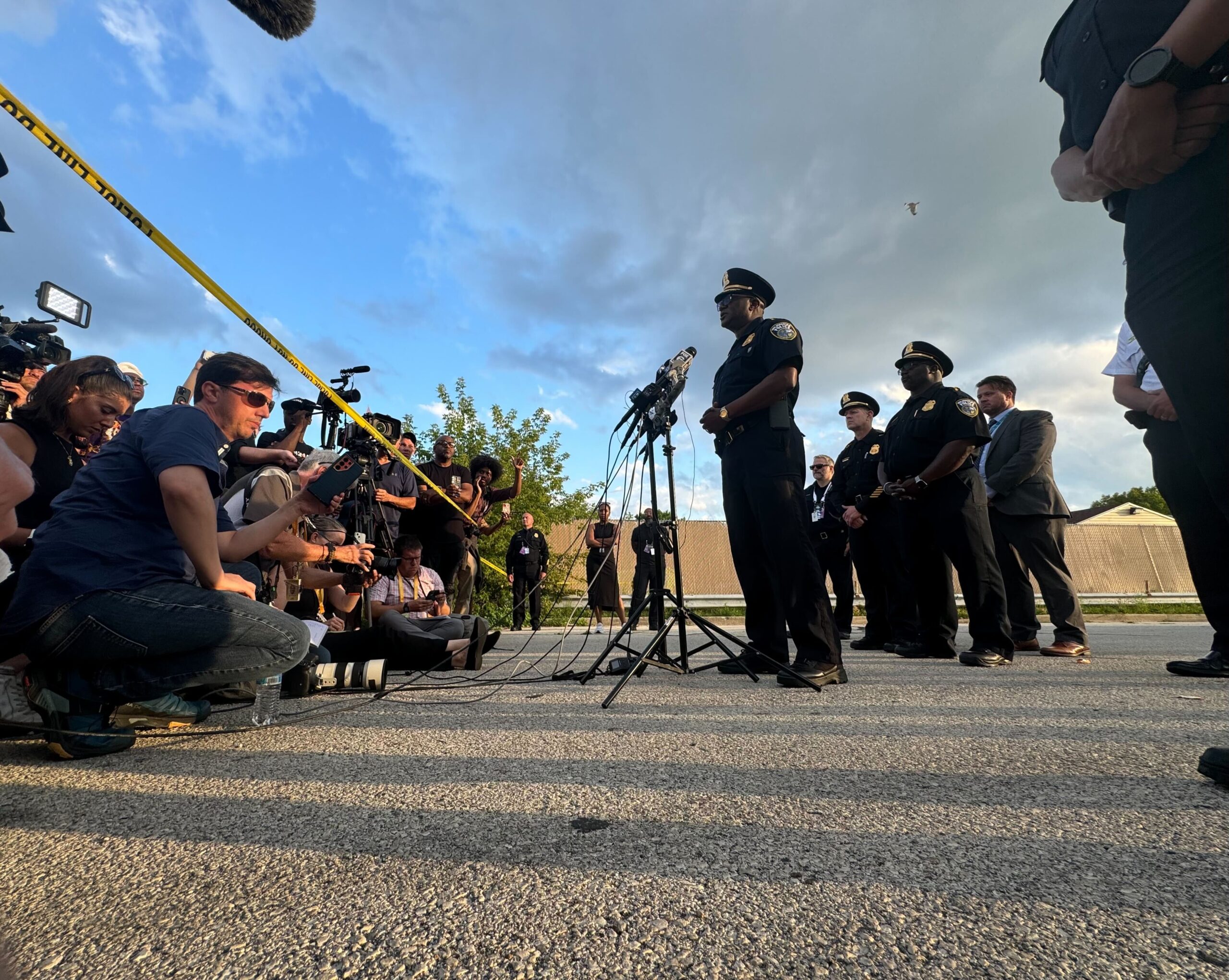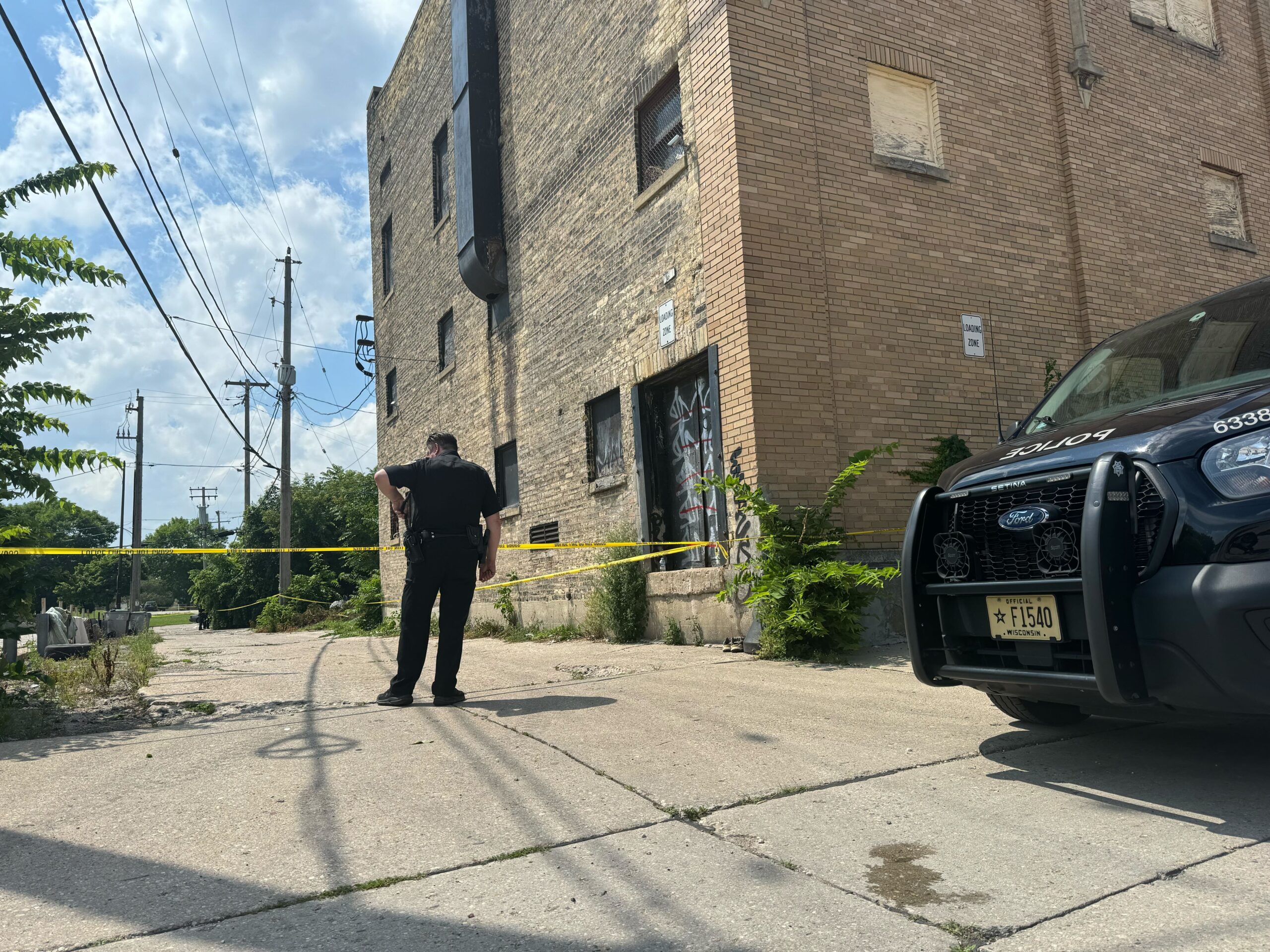An effort to allow certain immigrants lacking permanent legal status to become police officers and sheriff’s deputies has been reintroduced by a bipartisan group of state lawmakers. The legislation aims to provide more job opportunities for DACA recipients and address recruiting challenges among law enforcement agencies.
The federal Deferred Action for Childhood Arrivals, or DACA, program provides temporary protections against deportation for immigrants who arrived in the United States without legal status before turning 16 and who have lived in the country continuously since at least 2007.
DACA recipients in Wisconsin can become state troopers, game wardens, corrections officers and serve in the Wisconsin National Guard. But current state law explicitly bars them from serving as police officers or sheriff’s deputies for cities, villages, towns and counties.
Stay informed on the latest news
Sign up for WPR’s email newsletter.
“We trust permanent residents and other people that are lawfully able to work in our country to defend our nation,” state Rep. Sylvia Ortiz-Velez, D-Milwaukee, told Wisconsin Public Radio. “So, we should trust them to protect our streets.”
Ortiz-Velez is among a bipartisan group of two dozen state lawmakers pushing legislation to change state law and allow police and sheriff departments to hire DACA recipients.
Law enforcement agencies have been struggling to recruit and retain officers in recent years. Ortiz-Velez said making DACA recipients eligible to fill those positions can help, while also boosting diversity in departments.
“So, this bill would potentially open up access to a new untapped pool of candidates — candidates that will improve department community relations,” Said Ortiz-Velez. “It will increase trust to allow for more cooperation with department investigations.”
State Sen. Jesse James, R-Altoona, is a former police officer and lead sponsor of the Senate version of the legislation. He said there are around 6,200 residents in Wisconsin who are eligible for the federal DACA program.
“So, even if we can get a few applicants and get them in their academies and make our community stronger by having bilingual personnel working, I think it’s a win-win for Wisconsin,” James said.
An analysis by the state’s nonpartisan Legislative Reference Bureau found that seven states including North Dakota, California and Washington already allow people living in the country illegally to serve as police officers. Legislatures in four other states including Illinois have introduced bills this year to remove citizenship requirements for law enforcement officer jobs.
This isn’t the first time state lawmakers have tried to update statute to allow DACA recipients to serve as police and deputies. In March 2021, state Rep. John Macco, R-Ledgeview, first introduced the concept as Assembly Bill 176.
At the time, Macco said he was moved by a DACA teen who wanted to serve with the Green Bay Police Department but was unable because of a “double standard in hiring practices.”
“This bill brings parity to the hiring pool that each department can draw from. It is not a hiring mandate, it is not an immigration bill,” Macco said in written testimony about that bill. “Simply, it is common-sense legislation that would allow local law enforcement agencies to hire diverse and qualified candidates that have been in the U.S. since they were children, pay taxes and contribute to their community every day.”
Macco’s bill had support from the city of Milwaukee and the Wisconsin Chiefs of Police Association. It passed the State Assembly on Feb. 23 of last year, but failed to pass the Wisconsin Senate before the end of the legislative session.
Editor’s note: This story has been updated to reflect that the DACA program provides temporary protections against deportation for immigrants who arrived in the United States without legal status before turning 16 and who have lived in the country continuously since at least 2007.
Wisconsin Public Radio, © Copyright 2025, Board of Regents of the University of Wisconsin System and Wisconsin Educational Communications Board.







